Blog Updates

August-2019
SCALP MICROPIGMENTATION – THE ADAPTABLE SEMI-PERMANENT HAIR LOSS TREATMENT
22-08-2019
MHR’s SMP technician Helena Fryer explains different applications for the increasingly popular cosmetic hair procedure.
MHR Clinic can help everyone who faces hair loss. However, the degree of hair loss each person suffers determines the type of treatment they should have.
For most, a medical program of prescription tablets with low level laser therapy and minoxidil lotion will suffice. And in some cases a hair transplant is necessary. But in some circumstances scalp micropigmentation provides the ideal remedy.
Scalp micropigmentation is a non-invasive treatment which deposits semi-permanent ink onto the scalp to replicate the look of hair growth where hair loss has occurred.
It is most commonly used to simulate the look of a closely shaven head of hair, akin to a grade zero clipper haircut chosen by many men at a barbershop. Through the use of blended pigments and micro-needles, which create pinpoint marks the size of one hair follicle, SMP creates an extremely realistic effect.

SMP is a delicate cosmetic procedure used to replicate the look of a closely shaven head.
While its application is sometimes referred to as a scalp tattoo, scalp micropigmentation only penetrates two layers of the epidermis opposed to five affected by a traditional western tattoo. This makes SMP a semi- permanent treatment. It is most suited to people with black, grey and brown shades of hair colour.
Due to its semi-permanent nature, it is recommended that short term top-ups are carried out every 12-18 months to help retain pigment intensity and the most natural look possible.
Scalp micropigmentation does not penetrate the skin deeply enough for the pigment to last forever; however lighter shades of pigment can last on the skin for up to five years and ones up to ten years. Other factors including skin type, skin condition, age, health, diet, environmental factors, and amount of exposure to the sun or sun beds also determine the longevity of the pigment.
Scalp micropigmentation is an adaptable hair loss treatment and can be used to help alleviate insecurities experienced from different types of hair loss and in other circumstances that negatively affect confidence.
Extensive Baldness
When male pattern hair loss reaches stages five and six on the Norwood scale, baldness has reached a point which is difficult to reverse with a hair transplant. SMP can restore the look of a full head of hair by covering the crown and hairline with pigment while cropping hair on the sides and back of the head close with a grade zero clipper cut. SMP creates the illusion of real hair by replicating the look of natural stubble with pigment. It provides the look of a full head of hair shaved short.
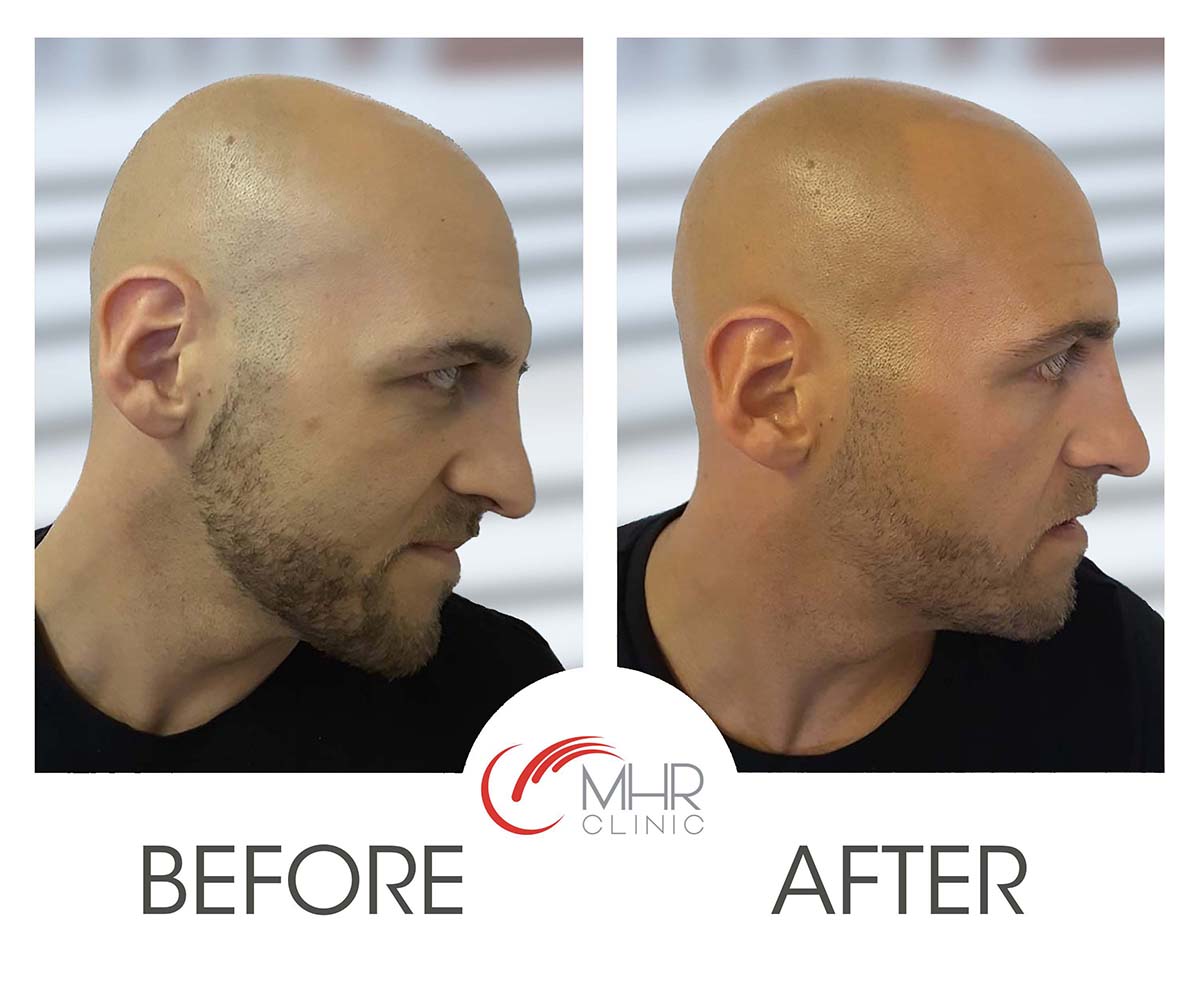
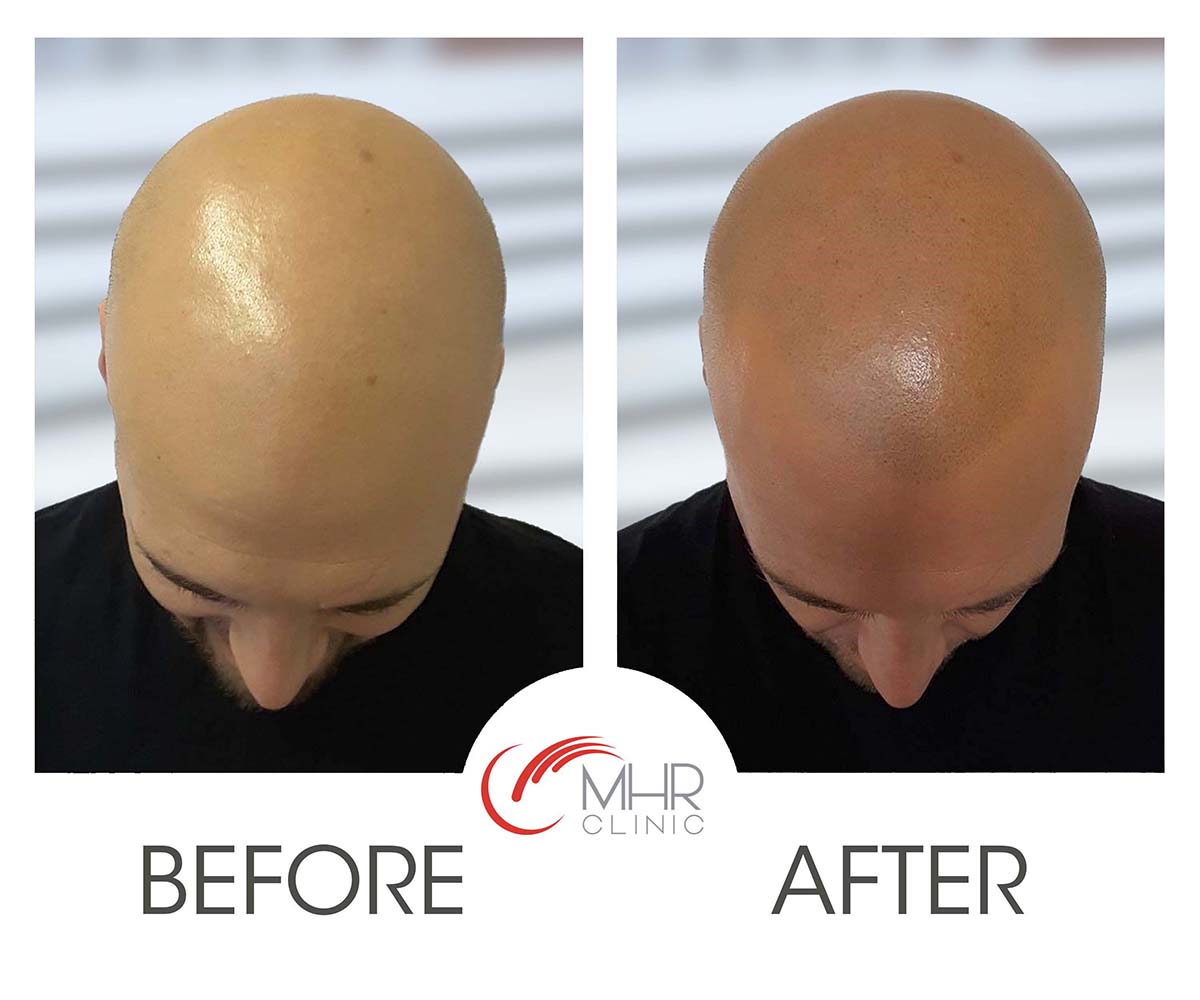
Scalp micropigmentation on the crown can be blended with closely shaved hair around the sides and back.
Thinning Hair
SMP is used to camouflage negligible patches of thinning hair that can benefit from a little brushing up. These minor areas of thinning hair are quickly and easily concealed by matching pigment to the colour of surrounding hair and placing pigment dots close together between existing strands so hair coverage appears thicker, fuller and stronger. The final effect is similar to that gained from using hair fibres, but with a more natural, longer lasting result and none of the bother of continually reaching for a tub of fibres.
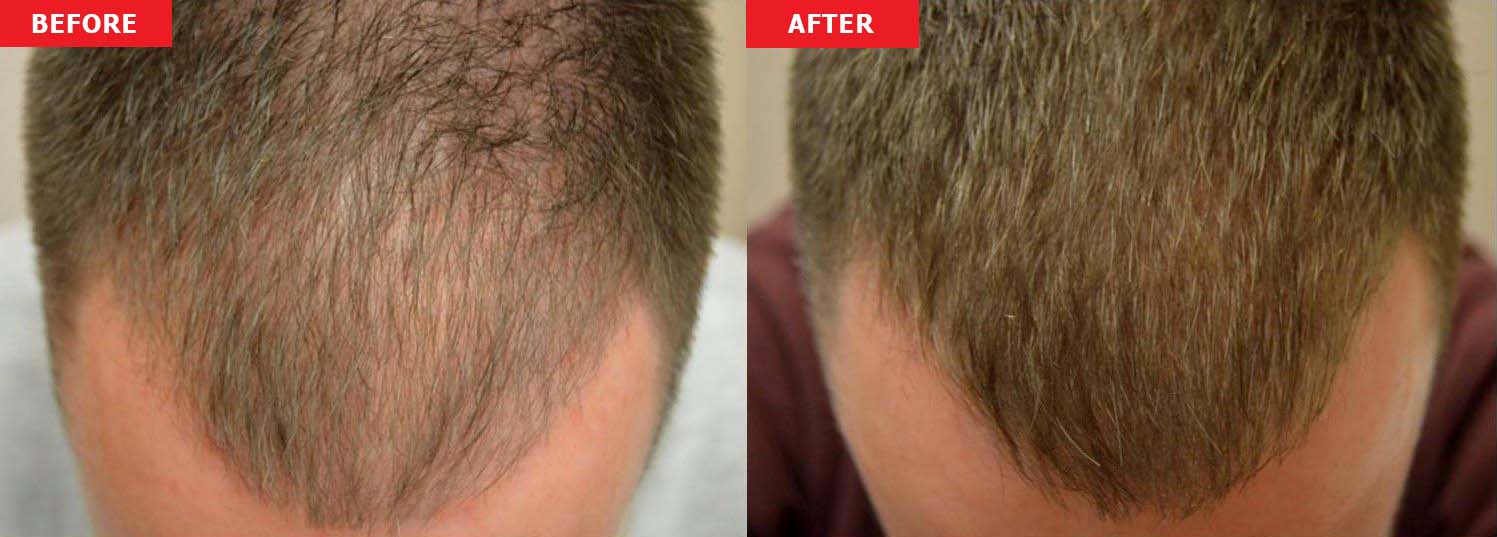
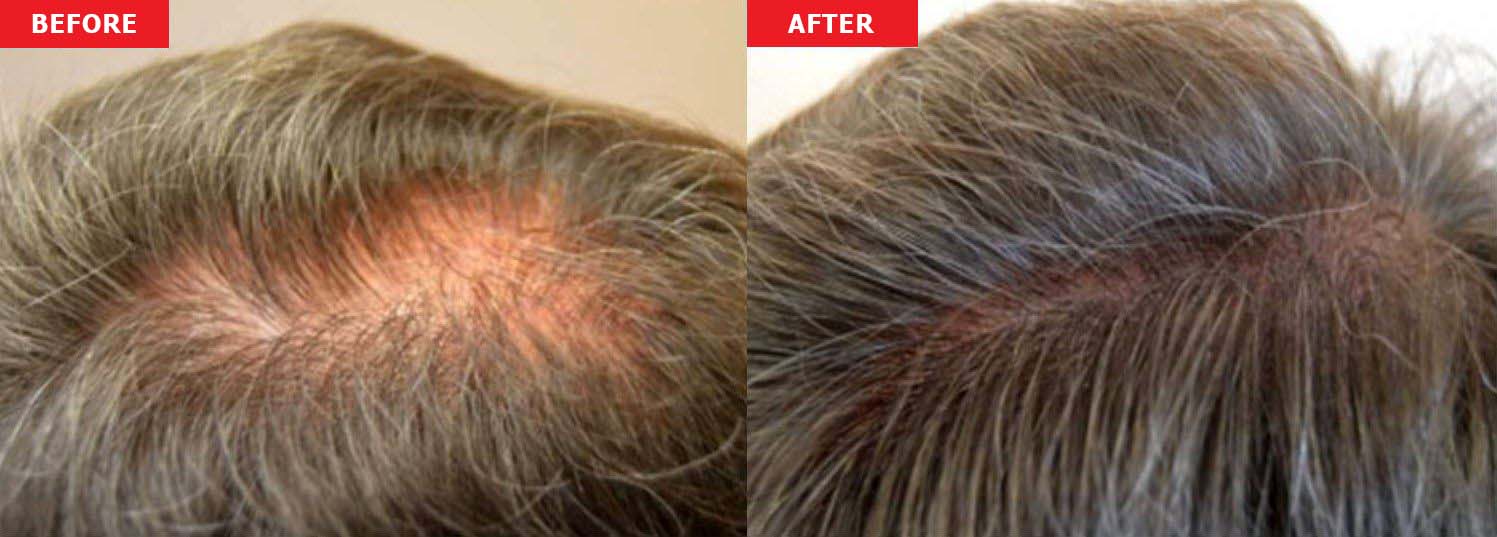
Pigmentation inks are easily matched to hair colour to give a full look.
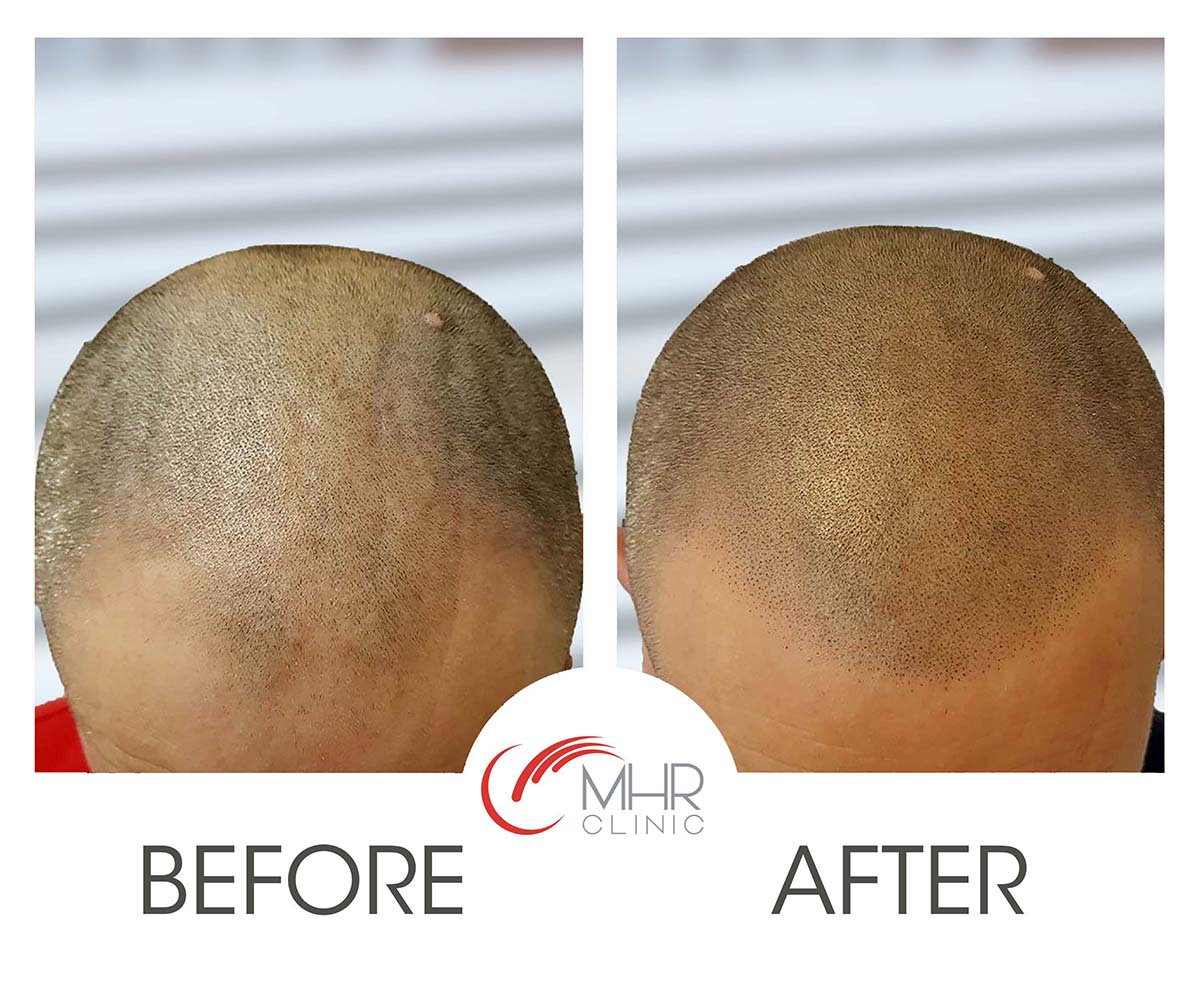
SMP can be used to fill the recessions above the temples to give the effect of a full hairline.
Receding Hairlines
As hair begins to recede at the front of the scalp, SMP can be carried out to restore the hairline. Using advanced techniques it’s possible to create a natural, feathered and broken simulation of closely cropped hair, so only a trained eye can spot the treatment and tell a hairline is receding. SMP only becomes noticeable to others if the hairline is sharp, straight or too low on the forehead, or if the pigment shade is too light or dark. Our SMP work avoids this so you receive undetectable results.
Alopecia Totalis
Alopecia Totalis is an auto-immune disorder that causes total hair loss on the scalp. The condition affects men and women in equal numbers and can occur at any age, but it is more likely to affect teenagers and young people between 14 and 30 years old. It is common in people with other autoimmune conditions, such as an overactive thyroid, Crohn’s disease or diabetes. SMP can restore the look of a closely shaved full head of hair by covering the crown, sides, back and hairline on the scalp with carefully selected pigments to match skin tone and age.
Receding Hairlines
As hair begins to recede at the front of the scalp, SMP can be carried out to restore the hairline. Using advanced techniques it’s possible to create a natural, feathered and broken simulation of closely cropped hair, so only a trained eye can spot the treatment and tell a hairline is receding. SMP only becomes noticeable to others if the hairline is sharp, straight or too low on the forehead, or if the pigment shade is too light or dark. Our SMP work avoids this so you receive undetectable results.
Alopecia Totalis
Alopecia Totalis is an auto-immune disorder that causes total hair loss on the scalp. The condition affects men and women in equal numbers and can occur at any age, but it is more likely to affect teenagers and young people between 14 and 30 years old. It is common in people with other autoimmune conditions, such as an overactive thyroid, Crohn’s disease or diabetes. SMP can restore the look of a closely shaved full head of hair by covering the crown, sides, back and hairline on the scalp with carefully selected pigments to match skin tone and age.
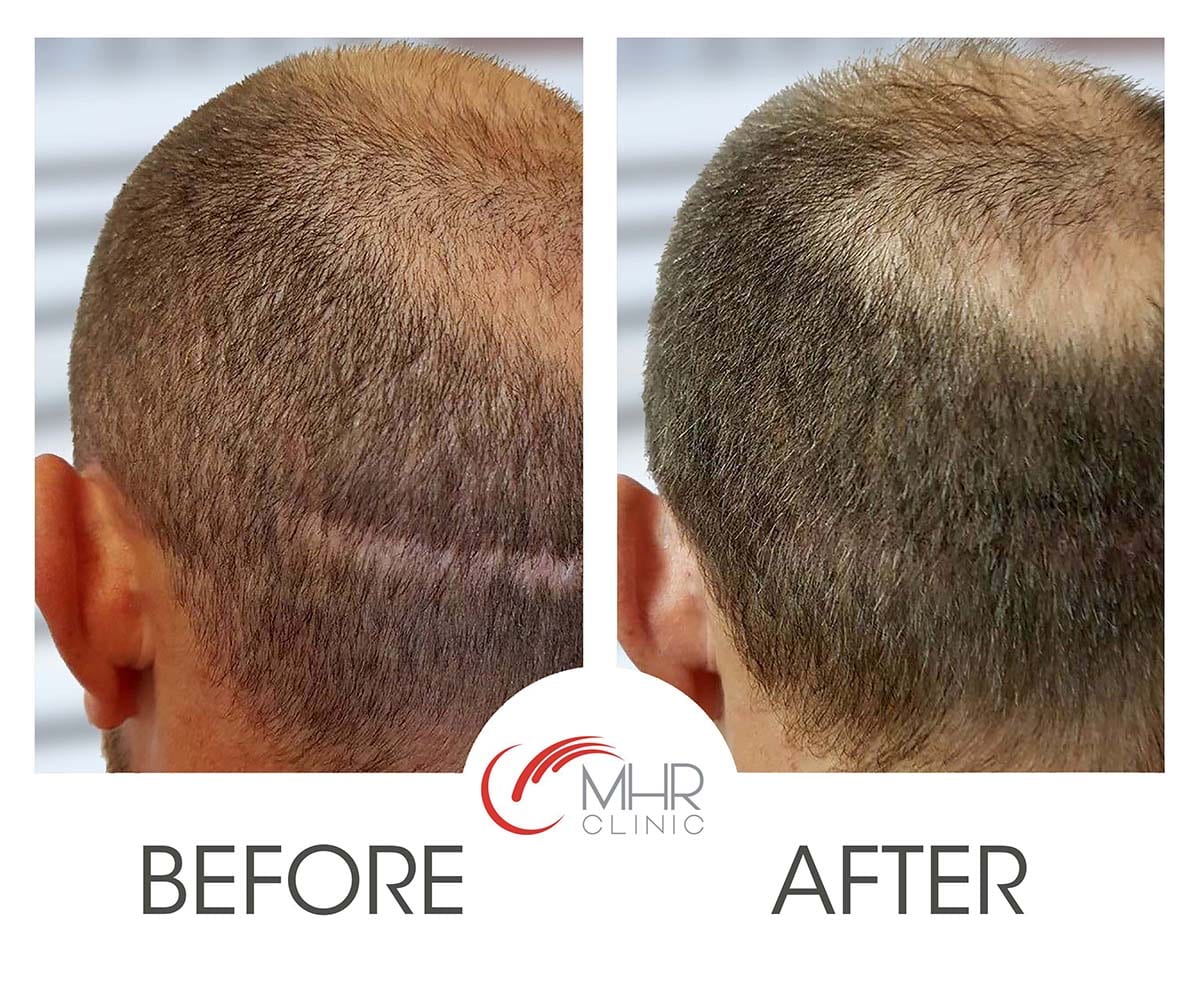
Scars left from older hair transplant techniques can be covered up by a good SMP technician.
MHR Clinic’s Scalp Micropigmentation is carried out by Helena Fryer, an SMP expert who trained on Harley Street and has more than five years’ experience in practice. Her trademark techniques include the blending softer hairlines for more natural appearances. For more information about Scalp Micropigmentation contact MHR Clinic on 01565 745344.
